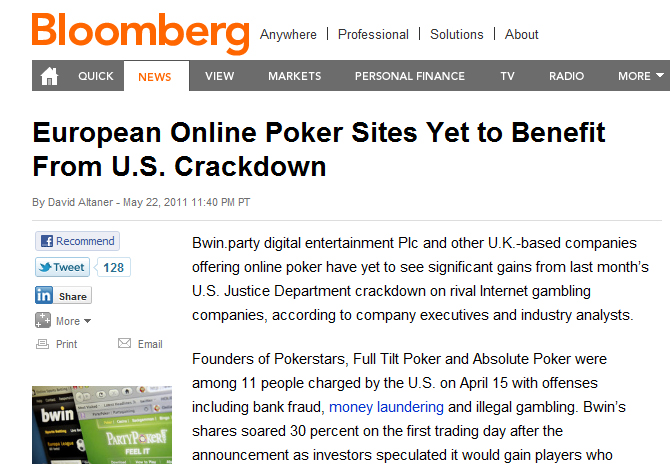More gloomy blowback from the domain name seizures and the government’s effort to drive the international online poker industry out of the U.S.
QuickTender / UseMyWallet halts withdrawals
Payment processor UseMyWallet (also known as QuickTender) has announced that it’s halted withdrawals of funds.
“It is our express intention to ensure that the funds of our account holders are safe,” announced UseMyWallet management. “For this reason we have decided to suspend future withdrawals until we understand what has happened to the money that has been frozen. If we continue to transmit bank wires into the US we could find that these funds also do not reach their ultimate beneficiaries. This would simply make the problem worse.”
Unmerge: Merge leaves 5 states
The Merge poker network has announced it will no longer accept players from five U.S. states: Louisiana, Maryland, Missouri, New York, and Washington, reports EGR. The network is proceeding with its plan to end its rakeback offering to new players on June 1, too. And Merge site Hero Poker recently announced it’s not accepting new U.S. players from any state.
EU sites not reaping advantages
Contrary to what lots of us predicted on Black Friday, the seizure of the .com poker domains in the U.S. has not seemed to boosted the general fortunes of the Internet poker industry in Europe. 
“PokerStars lost 29 percent of its players after it had to stop offering online poker to Americans, and Full Tilt Poker decreased 36 percent, comparing May 8-14 with April 1-14,” reports Bloomberg, citing PokerScout’s numbers.
Scapegoating escalates
At this point, it’s practically a witch hunt: Everyone’s blaming online poker for their woes. Minnesota-based Canterbury Park horse racing park has blamed its 2011 first quarter losses on “high unemployment and the sluggish economic recovery, as well as unlawful poker and horse racing wagering over the Internet.”
And how about this: “The money made from illegal Internet gambling often funds organized crime,” says William Winter, the special agent in charge of the Homeland Security Investigations in Baltimore, per the Baltimore Sun.
Guilty plea
Of course, it doesn’t help the industry’s perception that at least one of those indicted this week has already pleaded guilty — and agreed to work with prosecutors.
Bradley Franzen, resident of U.A. and Costa Rica, pleaded guilty on Monday “to conspiracy to commit bank fraud, to accepting funds in connection with unlawful Internet gambling and conspiracy to commit money laundering,” according to the Wall Street Journal. “He faces as many as 20 years in prison on the money-laundering conspiracy charge.”
If prosecutors continue to get these kinds of confessions from guilty operators, public perception of the online gaming regulatory drive is likely to falter, too.